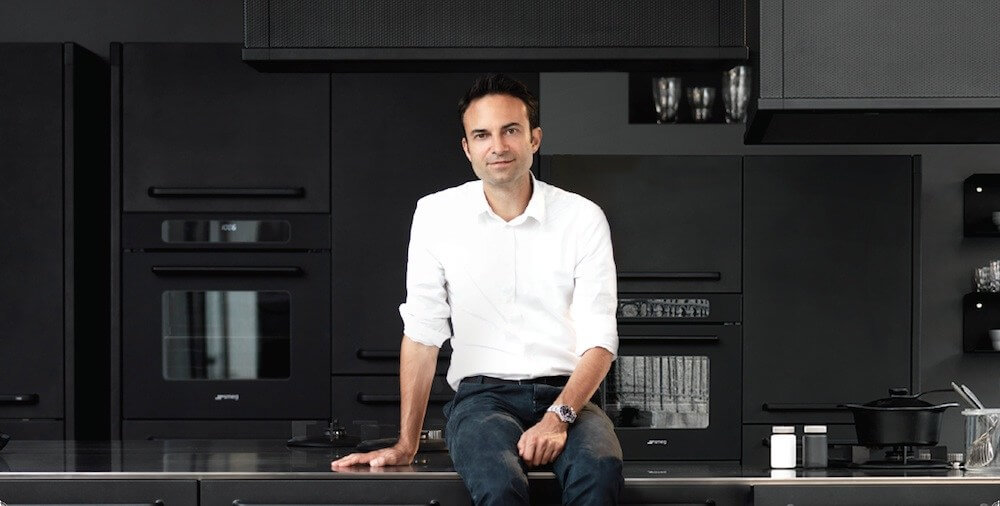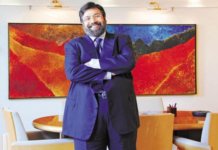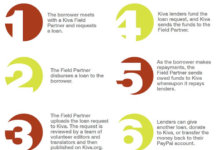In 1939, Danish metal turner Holger Nielsen designed a practical rubbish bin. Born out of a simple necessity to help his wife Marie in her hair salon’s daily chores, the design of this pedal bin became the cornerstone upon which a unique family business was built. The demand for the “Vipp bin” increased rapidly, and Holger Nielsen soon found himself catering to an array of clients.
Upon Holger Nielsen’s death in 1992, his youngest daughter Jette Egelund could not bear the idea that her father’s life’s work would simply disappear. She took over the Nielsen’s small workshop with only one employee, but carrying a great reputation for functionality and design. It was Jette who realised that the product had the potential to be sold to private customers in addition to the company’s existing commercial interests and so she began expanding Vipp’s sales endeavours with unmatched vigour. Jette’s son, Kasper Egelund, was at business school studying design and communications, when he took a part-time job with his mother to contribute to sales and marketing.
Today, the family business is one year short of its 75th birthday and Kasper Egelund is the CEO of Vipp. Together with his mother and sister, he has transformed the family enterprise. The Vipp bin has become an icon of the art world, the company’s product range has expanded dramatically and the happy marriage between utility and form for which Holger Nielsen laid the foundation remains. The Vipp bin has become a product of international repute due to the family’s unconventional branding strategy: The bin was reinterpreted by different artists and designers around the world. The creations were auctioned off and the proceeds distributed to various charities. Among the most prominent brands and artists trying their hand at the Vipp bin’s design are Philippe Starck, Karim Rashid, Nicole Farhi, Agnes B., Christian Lacroix, Swarovski, Calvin Klein and Ralph Lauren, in addition to others. In 2009, the Egelund family was honoured with the acceptance of the Vipp bin into the architecture and design collection of the Museum of Modern Art (MoMA) in New York City.
Interview with Kasper Egelund, CEO of Vipp
Tharawat magazine discovers the secrets of a family business that designed a bin, and created art.
[ms-protect-content id=”4069, 4129″]
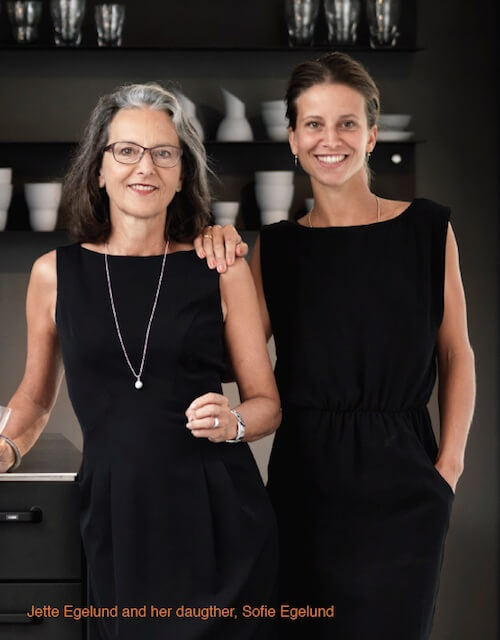
How did your involvement in the family business begin?
It was just supposed to be a part-time job. I worked through my studies alongside my mother and I realised that I had a marked strength for marketing and sales. As my studies progressed and the company grew, I got more and more excited about it. At some point my mother suggested I join the company after finishing my studies and I took the opportunity. After three years of hard work I earned my shares of the company and became a part-owner. Today, the ownership is divided equally between my mother, my sister; who joined the business shortly after I did, and myself.
We are lucky because our skills as a family align exactly with what the business needed at the time and still needs today.
How have your family business’ core values evolved with age?
When it comes to the product, we remain totally aligned with the values that we inherited from my grandfather. To us it is all about functionality, the choice of genuine materials, making things that last for a long time, and the appreciation of no-nonsense design. Those are the core values my grandfather built his business on. My mother has strongly reinforced these values and we, the third generation, have adopted them as well.
Of course as our team grew our values increasingly concentrated around the right type of leadership. My grandfather was not very growth-oriented as his passion was the development of the product; he was an inventor. We love to expand the business and enjoy taking the company to new markets.
How did the Vipp bin become an artistic icon?
Well, actually it was a creative response to a financial problem. In the beginning, we did not have the money to pay for advertising in the traditional sense. We had to figure out an innovative way to get people to notice us. We had to think differently. This is when we started to collaborate with artists, using humour and creativity to attract people to our brand. We were so pleased to see how many artists and designers wanted to play around with our product and the results far surpassed our dreams. The fact is that customers love things that they can associate with fun and beauty.
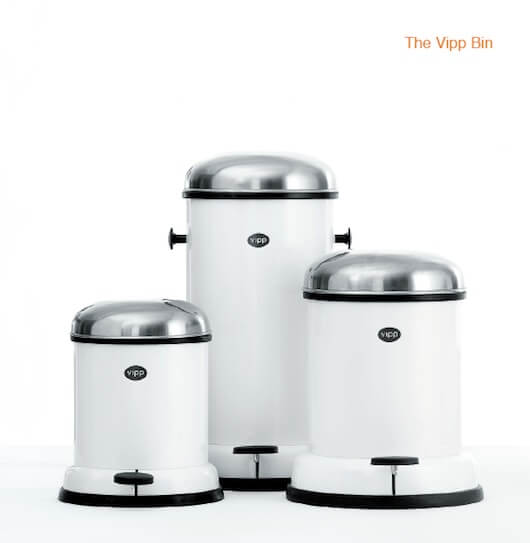
Which of your collaborations are the most memorable?
None of them stick out as much better than the rest. It was great working with all of the artists and designers. I mean it was a particular honour when Damien Hirst wanted to decorate a Vipp bin. We didn’t need convincing. He said, “I love that product. I’ll do one.” Another great moment was when Dominic Wilcox, a hereto unknown artist, transformed one of our bins into a xylophone! He fixed the wooden bars in a spiral along the outside of the bin. Every time someone uses the bin by pushing down the pedal, a little ball would emerge at the top and dance down the spiral case playing music. Whether the project is executed by a well-known artist or someone who just had a great idea, it’s all great marketing for us. Much of the money we have raised this way has been donated to good causes. Everybody’s a winner.
How would you explain the Vipp brand’s ascension to global renown from a simple product?
It has been a steady rise, so it’s not just up and down, or up and flat. It’s been a long journey. The family company will be 75 years old next year. The adventure that I have been on with my mother and sister, however, has been mostly shaped in the last 12 years. Even though a lot has happened in that short a time, it was still in small incremental steps. We are now planning to open new stores, which will display our whole range of products including our kitchen systems. We now have so many products, but it all feels like a very natural procession from the bin.
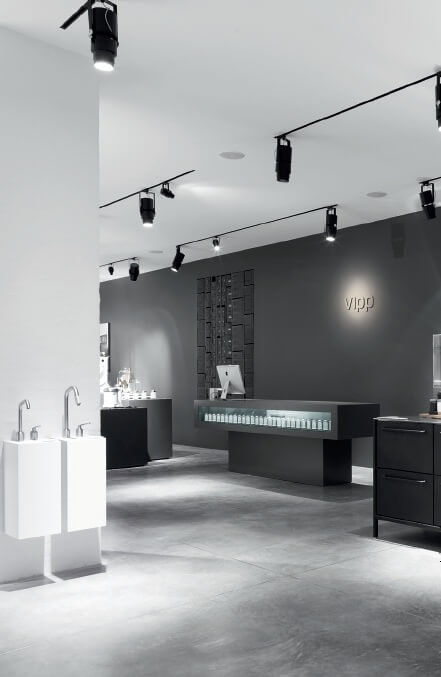
Do you believe that more businesses should connect with the arts and design scene as Vipp has?
Well take Louis Vuitton for instance; some of their new stores appear partially as art in a museum would. Many businesses in the luxury sector are blending their efforts with the arts and design industry. When we design a kitchen system it is very much like the process of creating an art piece. So blending our industrial products with the arts was a natural extension. Every business that works in high-end design will have a natural affinity with the arts industry in my opinion.
Has working alongside family enhanced your creativity?
The good thing about working with family members is that you know that they’re there for the long run. That gives a very stable base because it means that you can take more chances. But it’s very important when you work as a family, that you’re very pragmatic and you know who’s good at what. The worst that can happen is for you to get into a fight. I think that happens in many family businesses and it’s never worth it. If you can’t run the business in a good spirit, you should be really careful, because your family is the most important thing you have in your life.
My advice is that if you are pragmatic, you know what you’re good at, and even more importantly, you know what you’re not good at, and in that case you can have a very strong foundation to build a business on. This is what happened in our case. Today, we jump out of bed and enjoy going to work with our team. This is why we can be more creative, and I think that’s why we can take more chances.
How have you managed to maintain such a pragmatic approach to the role distribution in your family business?
I think it played out naturally in our case. I have a leadership education background because I used to be part of the military> air force. So it was natural for me to take the leadership role within the business. And then I have my marketing and sales strengths due to my business studies. My sister, on the other hand, is very strong on the creative side. It was logical for her to take on that part of the business. My mother is an entrepreneur at heart and she has a strong vision for the future combined with a willingness to take risks. We all complement each other in a natural fashion. We all enjoy the journey.
Of course we have disagreements but we never let them turn into lasting problems. You have to be pragmatic. Avoid creating conflicts and digging a hole for yourself. We have had a terrific experience these last few years. My wife even joined the company and I think she enjoys being here. It is also important to never forget that there are other things in life than work. Always find something else that you can be excited about too, so that work is not everything.
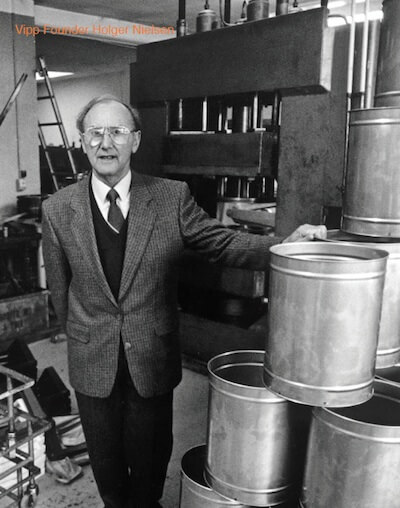
Do you think your grandfather foresaw worldwide fame for his Vipp bin?
Unfortunately, no. That’s the sad thing about our story; he died before this unique, fantastic product ever got the fame it deserved. We got the highest award in our industry by being accepted into the permanent exhibition at the MoMA in New York. It’s like getting the Nobel Prize or an Oscar in our industry. When this honour was given to us in 2010, I really hoped that my grandfather was looking down on us, because that’s something that he deserved the credit for. He created the product. Of course, we created the sales and marketing strategy around it, but you can’t have this success without an excellent product. People aren’t stupid. They will only buy a product if they believe that it’s going to do something great for them. I think if my grandfather saw the company today he would very happy.
A unique feature of our family busine>ss story is the branding strategy in collaboration with artists. Even the expansion of the product line was maintained in line with the specific DNA of our design. All products are from the same family, so it doesn’t matter if we are making salt and pepper mills or a whole kitchen; they all must stay in line with our principles. And that also means that a lot of the consumers who buy our product may buy across our line. They become fans of our designs.
We didn’t have any money. We just had a big dream. We were just modest Danish people, with no private equity, no investments. But we worked hard, and we made it. I think anyone who runs a family business should remember this: Don’t make excuses; if you’re humble you can dream big. And if you work hard you can actually make your dreams come true.
Tharawat Magazine, Issue 20, 2013
[/ms-protect-content]


